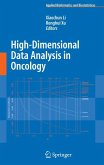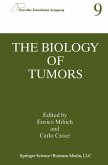The Molecular Genetics of Lung Cancer describes how the new techniques, methods and approaches of molecular genetics are being used to unravel the complexities of the mechanisms underlying lung tumorigenesis by analysis at the DNA, RNA and protein levels with potentially important implications for tumour classification, diagnosis, prognosis and treatment as well as providing new insights into how lung tumours arise and how they progress to malignancy.
Dieser Download kann aus rechtlichen Gründen nur mit Rechnungsadresse in A, B, BG, CY, CZ, D, DK, EW, E, FIN, F, GR, HR, H, IRL, I, LT, L, LR, M, NL, PL, P, R, S, SLO, SK ausgeliefert werden.
"The molecular genetics of lung cancer provides an up-to-date and comprehensive review of the rapidly evolving area of genetics and lung cancer ... . is an excellent compilation of the available literature on this subject. The data presented are comprehensive and impressively up-to-date. The material is well presented, easily understandable and very well referenced, complemented by good illustrations and diagrams to aid comprehension. ... Much more than being simply a reference book, this text provides insightful reviews and critique of the research material ... ." (Athena Matakidou and Richard Houlston, Human Genetics, Vol. 117 (4), 2005)









